Trends in development of the IT industry around the world demonstrate ever-increasing competition between countries for qualified IT specialists, preservation of high-tech companies within countries and creation of the most business-friendly conditions for their activities. This is largely due to the fact that the IT sector is not only highly profitable, but also attracts new foreign and national investors to a country’s economy.
Key Issues:
- Subject of the information technology industry
- Procedure for obtaining and cancelling the separate status of the Subject
- Taxes and fees
- Precautions
- Alternative options
According to authoritative international publications, Ukraine is an extremely attractive place for high-tech development and investment. In particular, according to the “Information technology industry in Ukraine” report, Ukraine ranks 7th in terms of quality and efficiency of freelance workers in the digital sphere and 24th in the top 55 most attractive countries for outsourcing.
It is worth noting that Ukrainian IT companies have been consistently ranked as some of the top global outsourcing service providers for several years. Among them are EPAM, Ciklum, ELEKS, Luxoft, N-iX, Miratech, Intetics, SoftServe, Softjourn, Sigma Software, TEAM International Services, Program-Ace and Softengi. Moreover, Ukraine ranks 11th in the top 50 developers in the world.
Given this, there is huge potential for development. However, the current global crisis has further intensified competition and immediate adjustments are required to ensure the development of new business lines and preservation of existing markets.
According to the “Information technology industry in Ukraine” report, Ukraine ranks 7th in terms of quality and efficiency of freelance workers in the digital sphere.
Ukraine has a leading position in the world among countries who are developing their IT sectors and attracting new investments, and it has long been necessary to create competitive conditions for the development of the IT industry in Ukraine. The main issues to be addressed include taxation of market participants and registration of labour relations with employees. The Verkhovna Rada is already considering options to increase the investment attractiveness of Ukraine, which should help strengthen Ukraine’s competitiveness in the global IT market.
For this purpose, on July 23, 2020, the Verkhovna Rada registered Draft Law No. 3933 “On amendments to the Tax Code of Ukraine on Specifics of Taxation of Subjects of the Information Technology Industry” (hereinafter – “Draft Law No. 3933“).
If adopted, the Draft Law No. 3933 will enter into force on January 1, 2021. However, if Draft Law № 3933 is adopted in the current wording, the government’s initiatives are unlikely to bring the desired results, and risk damaging the existing delicate balance in the IT field.
We would therefore like to draw IT entrepreneurs’ attention to the main provisions of Draft Law 3933 and reasons why the proposed changes to IT industry taxation do not fully solve the problem in this area.
Subject of the information technology industry
First of all, close attention should be paid to the introduction of a separate subject of legal relations, namely, the subject of the information technology industry (hereinafter – the “Subject“).
Thus, Draft Law No. 3933 defines that the Subject is an economic entity which, during the previous four consecutive reporting (tax) quarters, together and simultaneously meets the following criteria:
- The total amount of income from the economic activity of the Subject is equal to or exceeds 90 percent of income from all types of economic activities involving the sale of goods, performance of work or provision of services. These types of economic activities include (according to KVED 009: 2010):
- 29 Other software publishing services
- 21 Publishing services of computer games
- 01 Computer programming services
- 02 Computer consultancy services
- 03 Computer facilities management services
- 09 Other information technology and computer services
- Proportion of labour costs to the cost of goods sold, work performed or services rendered is equal to or exceeds 50 percent;
- The Subject has no tax debt;
- No Court has issued a resolution declaring the debtor bankrupt in accordance with the Law of Ukraine “On Restoration of Debtor’s Solvency or Recognition of Debtor’s Bankruptcy”.
The main issues to be addressed include taxation of market participants and registration of labour relations with employees.
It should be noted that the Code of Ukraine on Bankruptcy Procedures is currently in force in Ukraine, and the Law of Ukraine “On Restoration of Debtor’s Solvency or Recognition of Debtor’s Bankruptcy” expired on October 21, 2019.
Judging by its name and definition, we can see that the purpose of Draft Law № 3933 is not to solve the existing problems in IT industry taxation, but only to create a new Subject of legal relations, which will be taxed according to a special model. It is extremely doubtful that such a model will be warmly accepted by most IT specialists, as it does not take into account the peculiarities of the Ukrainian IT market and different facets of the sector. Therefore, the industry itself must come up with an answer for why such a Subject is needed at all.
Procedure for obtaining and cancelling the separate status of the Subject
Draft Law No. 3933 determines that in order to obtain the special status of the Subject, the taxpayer or his representative, no later than 30 calendar days before the reporting (tax) quarter, should submit to the supervisory authority at its location the following documents in paper or electronic form:
- registration application;
- financial statements;
- copies of primary documents confirming the right to hold the status of the Subject and use the relevant tax arrangements.
Registration can be refused only if there is a discrepancy with the requirements for the Subject established by Draft Law No. 3933.
In order to regulate Subjects’ activities, the creation of a new register of subjects of the information technology industry has been proposed.
The registration of a Subject can be cancelled in the event of:
- submission of the relevant application by the Subject;
- inconsistency of the Subject with established criteria;
- termination of the Subject’s economic activities which granted it a special status in connection with liquidation or reorganization.
IT professionals who are individual entrepreneurs on a simplified taxation system and work on a contract basis will not be able to take advantage of the new innovations.
Taxes and fees
The main purpose of Draft Law No. 3933, at least as stated by its authors, is to increase the level of competitiveness and attraction for foreign and domestic customers of the information technology sector of Ukraine by establishing special taxation regimes for IT companies for the period from January 1, 2021 to December 31, 2030, namely:
- A tax burden on employees’ salaries at the level of 10% (5% PIT (instead of 18%) and 5% UST (instead of 22%), as well as exemption from military duty);
- An income tax rate with a coefficient of 0.5 (an effective rate of 9%) is applied to the income of the Subject.
At the same time, UST for such employees cannot be less than UST at a rate of 22% from 5 minimum wages and no more than UST calculated at a rate of 22% of the maximum UST accrual base – 15 minimum wages.
Indeed, it may seem that the tax burden is reduced for the IT industry. However, if you analyze Draft Law № 3933 a little deeper, it becomes clear when one looks at the requirements for Subjects who wish to take advantage of tax reductions that only extremely large companies will be able to work to such a model.
IT professionals who are individual entrepreneurs on a simplified taxation system and work on a contract basis will not be able to take advantage of the new innovations, even though such freelance IT specialists are one of the most valuable resources in Ukraine, given that the trends of recent years show that the IT industry in Ukraine is heavily focused on foreign markets.
Precautions
Draft Law № 3933 also provides several restrictions, which, in the opinion of its authors, should prevent abuses of the Law by businesses. However, these measures are likely to hinder and restrain the development of the IT industry, since they establish:
- restrictions on activities under the Classification of Foreign Economic Activity (6 permitted types);
- strict requirements for activities (90% of income from IT activities, labour costs equal to or exceeding 50%);
- penalties (200% of the accrued tax liability amount);
- restrictions on minimum amounts: PIT – UAH 4,723 * 5 * 18% = UAH 4,250.7; UST – UAH 4,723 * 5 * 22% = UAH 5,195.3
It can therefore be calculated that IT specialists’ salaries need to reach very high amounts before the possibility of applying preferential rates for the Subject begins to apply. However, not every company can afford to pay such high salaries.
Without open discussion of the Draft Law with representatives of the IT industry, it will be impossible to develop a single consolidated model for taxation in this sector which would protect the interests of business and create advantageous conditions for international investment.
Alternative options
Furthermore, other projects have been registered in the Verkhovna Rada, which are much more balanced and give greater focus to the needs of the industry and individual IT professionals.
Among them are alternative draft laws on amendments to the Tax Code of Ukraine and other laws of Ukraine (on measures stimulating the development of the information technology industry in Ukraine) № 3933-1 of August 10, 2020 (hereinafter – “Draft Law № 3933-1“) and on measures for stimulation of IT industry development in Ukraine № 3979 of August 11, 2020 (hereinafter – “Draft Law № 3979”).
Draft Law № 3979 proposes the creation of more competitive business conditions in order to encourage IT industry development in Ukraine, which provides a complex solution for the current problem.
To summarize Draft Law No. 3979, we can highlight the main innovations in the comprehensive settlement of the existing problems in the IT industry:
- introduction of a special taxation regime for subjects and employees of the IT industry, established by Draft Law No. 3933-1;
- settlement of a contractual form of labour relations;
- introduction of a special register for the IT industry;
- introduction of a much more balanced model for creating the IT industry subject, in contrast to the one proposed in Draft Law No. 3933.
Draft Laws No. 3933-1 and No. 3979 are intended not only to improve the foundations of the IT industry as a whole, but also to ensure IT development which will encourage the creation of intellectual property objects in Ukraine, as well as the encouragement of research and development activities, none of which are possible without proper settlement of relations with employees.
Therefore, Draft Law No. 3933-1 seeks to introduce a number of measures stimulating the development of the IT industry, namely introduction of the following changes to taxation:
- salaries and similar payments to IT industry employees taxed at 5% PIT and 5% UST (provided that the amount of the single contribution is not less than double the amount of the minimum insurance contribution);
- corporate income tax only applied to certain operations of a legal entity.
Conclusion
The main purpose of the abovementioned Draft Laws is to create conditions beneficial to the development of the IT industry and to reduce the tax burden on business. However, these draft laws cannot be considered fully completed, as they do not take into account all the demands and aspects of the IT industry in Ukraine.
In any case, without open discussion of the Draft Law with representatives of the IT industry, it will be impossible to develop a single consolidated model for taxation in this sector which would protect the interests of business and create advantageous conditions for international investment.
In addition, when analyzing prospective measures of the Draft Laws one should pay attention to whether their adoption contradicts the steps taken by the state within the framework of the BEPS plan (Base Erosion and Profit Shifting).
Authors: Igor Pugaiko, Counsel at Hillmont Partners, Head of Administrative and Tax Law Practice; Oleksandr Vorontsov, Associate at Hillmont Partners


























